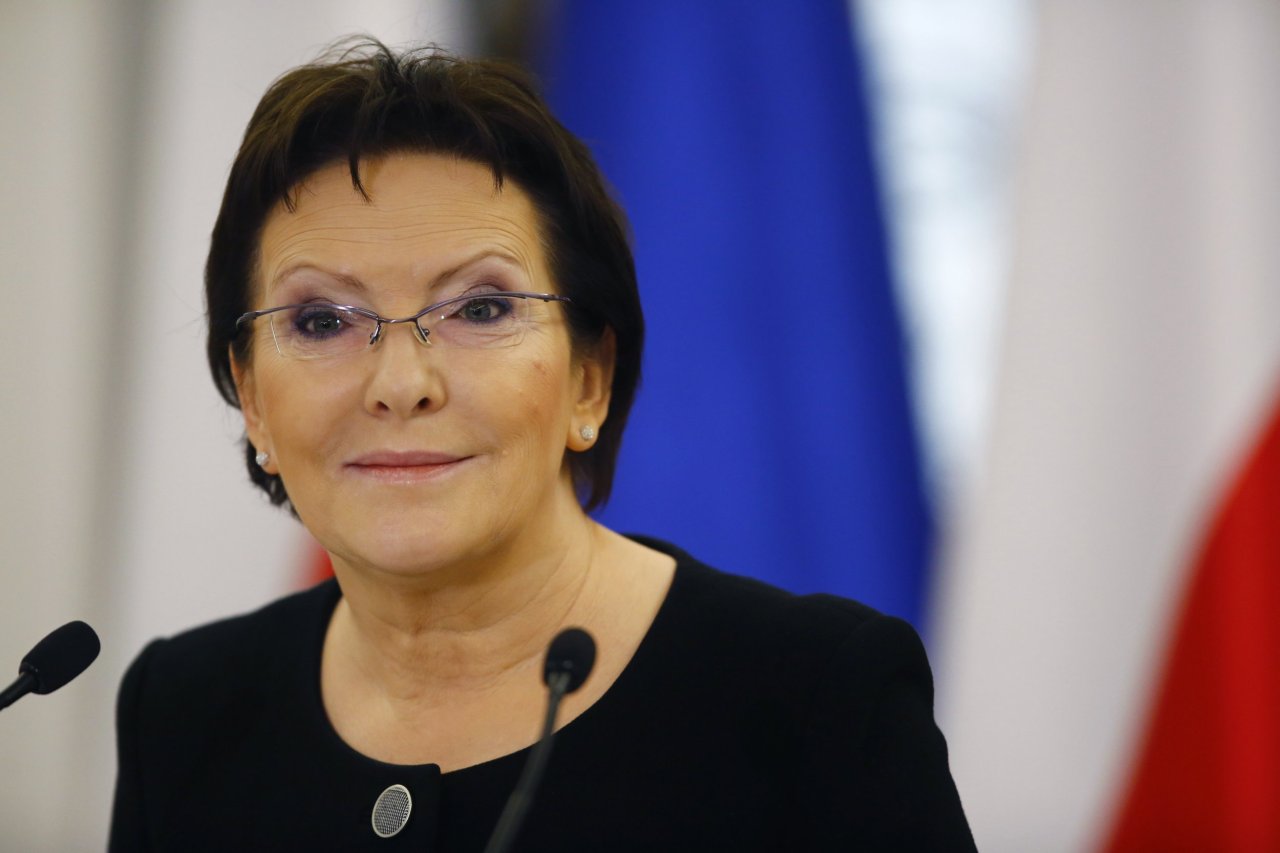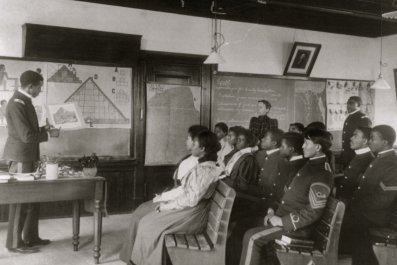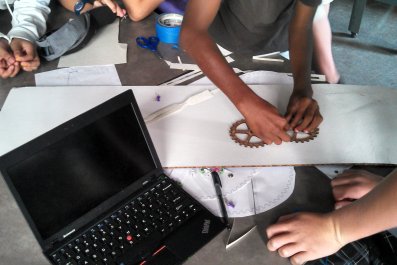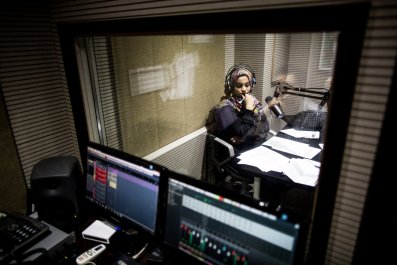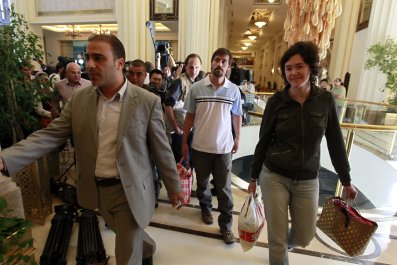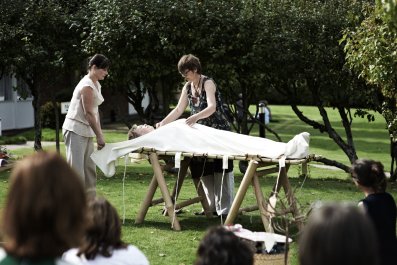She's never made a memorable speech in her political life. Few people outside Poland will have heard of her and even her party's supporters accept that she lacks ideological conviction. But Ewa Kopacz, the daughter of a seamstress and a locksmith, looks set to become Poland's prime minister following the appointment of Donald Tusk as president of the European Council.
It's quite an achievement for a woman who only three months ago was seen wearing a pink T-shirt with the dreamy words of a poem entitled "What would I be?" printed on the front.
At the time, the tabloid newspapers dismissed it as more appropriate for a teenager than the Polish Speaker. But it made no difference to Tusk. He pushed for Kopacz to replace him and regards her as the right person to lead the centre-right Civic Platform party into next year's general election.
No surprise there. Kopacz, 57, has been endlessly loyal to Tusk and is regarded as a safe pair of hands at a dangerous time in Poland's post-war history. She will become Poland's second female prime minister, after Hanna Suchocka in 1992-93.
But that's the easy bit. Far harder will be galvanising a weary party that only managed to scrape a 0.35 percentage point win in the elections to the European Parliament in May.
That was followed three weeks later by Poland's "Waitergate" wire-tapping scandal, which involved top government officials and further damaged Civic Platform's standing.
Now the party has to confront the conservative Law and Justice party, its bitter rival, in local government elections in November, which are widely seen as a test for the general election in 2015.
Tusk has ruled out early elections, even though 52% of Poles would have liked to see them take place, according to a poll conducted by Millward Brown after Tusk got the EU job.
Tusk's appointment provided a momentary lift. Not since John Paul II became pope in 1978 has a Pole reached such dizzy international heights and Civic Platform's ratings have risen by 10 percentage points compared to June, according to a TNS Polska poll published this month. That puts Tusk's party in the lead with 34%, ahead of Law and Justice's 28%. But this is likely to be short-lived.
Kopacz entered politics in 1997 after her late husband, Marek Kopacz, a prosecutor, stood unsuccessfully for parliament. She rose quickly through the ranks of local politics, winning a seat in parliament in 2001 with Tusk's newly-founded Civic Platform. When the party came to power in 2007, she became minister of health and, in 2011, was appointed speaker of parliament. Her political career outlived her marriage, which ended in divorce in 2008.
Outside politics, she seeks solace at the seaside with her daughter and two-year-old grandson. "I don't have to be so correct and composed there," she has told journalists.
When Tusk's sister Sonia suffered a stroke in 2005, Kopacz became involved in her treatment, travelling to hospitals around Poland with her. She has been able to get away with more since then, says Janusz Palikot, a leftist lawmaker who left Civic Platform in 2010 and wrote a book about the party from an insider's perspective.
Kopacz's ascendency is expected to be marked by continuity rather than change. She has stuck with Tusk for over a decade and belongs to the shrinking group of Civic Platform politicians from the 2001 cohort. Along with Hanna Gronkiewicz-Waltz, the mayor of Warsaw, and Elżbieta Bieńkowska, the deputy prime minister, who will accompany Tusk to Brussels to become Poland's EU commissioner, she is one of the trusted women with whom Tusk has surrounded himself over the years.
This unwavering loyalty to Tusk – rather than shining achievements or personal flair – is widely regarded as Kopacz's main qualifications for assuming the role of prime minister. Kopacz herself put loyalty at the centre of her speech to Civic Party's board when it endorsed her on September 3 and Tusk pushed for her despite rumours that President Bronisław Komorowski – who will officially nominate the next prime minister – would prefer someone else.
Tomasz Siemoniak, the defence minister, was still being discussed by the media as an alternative last week – but has since denied that he was ever a contender.
"Having Kopacz in charge will enable Tusk to continue to steer Polish politics from Brussels," says Jarosław Kaczyński, the leader of Law and Justice Party. This is a view not restricted to the opposition.
Kacsynski and other of her detractors still accuse her of mishandling the identification of bodies following the Smolensk plane crash in April 2010, which killed 96 Poles including then-president Lech Kaczyński, Jarosław's twin brother.
Meanwhile, Kopacz faces predators in Civic Platform, in particular from Grzegorz Schetyna, Tusk's main rival, who was Speaker before her. And if the party splits, Law and Justice will be there to reap the rewards.
"But Kopacz could still grow into the role of prime minister and become increasingly independent from Tusk'', says Wojciech Szacki, a political analyst at Polityka Insight, a Warsaw-based think-tank.
"Even so, the key question is whether an independent Kopacz has what it takes to win the general elections next year.''
Kopacz is a keen diary writer. In the past she has hinted that one day her scribblings might be published. "It will be a document about whether it's worth being in politics and the price one pays for it," she has said. Her entries from the next few months may make for the most riveting chapters of the book.



